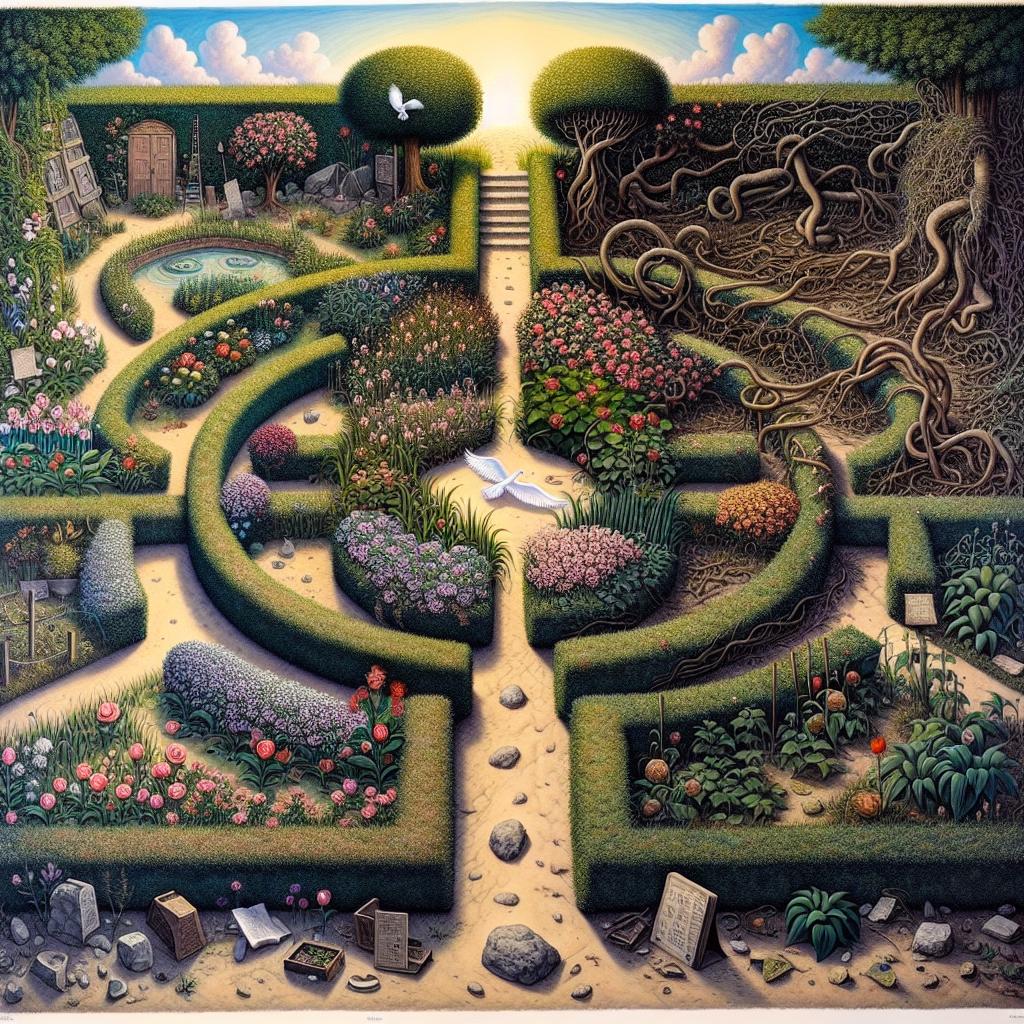
Embracing Divine Order: Navigating Chaos Through Faith
Published: 20 August 2024
Order or Chaos?
In the study of chaos theory, scientists have discovered that what may appear as chaos at first glance actually contains intricate patterns and order. This challenges the long-held belief that the universe operates solely based on simple laws. Chaos theory reveals that even seemingly inconsequential changes in initial conditions can lead to significant differences in outcomes. This article explores the implications of chaos theory and how it aligns with a young-earth creationist perspective.
Why This Matters
Understanding chaos theory allows us to appreciate the complexity and design of the universe created by God. It challenges our assumptions about predictability and encourages us to explore the mysterious nature of God's creation. By delving into chaos theory, we gain insight into the limitations of scientific knowledge and recognize that there is much more to discover and understand.
Think About It
How does chaos theory challenge your understanding of the universe? How does it influence your perception of God's creation? Consider the beauty and intricacy found in chaotic systems, and reflect on how they reveal the wisdom and design of our Creator.
Chaos in Scientific Thought
For centuries, scientists believed that they could describe the workings of the universe using simple equations and predict any outcome. This assumption was based on the idea that the laws governing motion in our universe were consistent and unchanging. However, as scientists observed more systems in nature, they encountered phenomena that defied their simple equations. Wobbles in planetary orbits, turbulence in airflow patterns, and fluctuations in animal populations were just a few examples of systems that did not conform to expected behavior.
Unexplained Order in Chaos
The discovery of chaos theory revealed that even seemingly chaotic systems exhibit patterns and order. With the help of powerful computers, scientists were able to test equations that had been relied upon for years. They found that under certain conditions, these equations produced chaotic results. Upon closer examination, they realized that these apparently disordered systems followed intricate patterns.
Complex Structures and Fractals
One fascinating aspect of chaos theory is the presence of complex structures and fractals in nature. Fractals are self-replicating patterns that exhibit self-similarity on different scales. These patterns can be observed in branching structures like tree limbs, the veins on a leaf, or the intricate branching of airways in our lungs. Even seemingly unrelated systems, such as the formation of ice crystals or the branching patterns of an electrical discharge, display similar fractal patterns.
The Butterfly Effect
Edward Lorenz's work on weather modeling led to the discovery of the "butterfly effect." This concept suggests that minute differences in initial conditions can have significant impacts on the outcome of a system. Lorenz's equations produced a twisted figure-eight shape, known as a strange attractor, which never repeated itself exactly. This finding demonstrated that even in chaotic systems, there is a form of predictability embedded within the complexity.
Chaos in the Human Body
Chaos theory has also shed light on the behavior of complex systems within the human body. Researchers at Harvard Medical School discovered that the rhythm of the human heart is chaotic and essential for its proper functioning. Comparing healthy heartbeats to those with heart disease, they found that chaotic behavior was more prevalent in healthy individuals. This suggests that chaos plays a crucial role in maintaining optimal physiological processes.
The Significance of Chaos
Rather than viewing chaos as disorder or confusion, chaos theory reveals a deeper level of complexity and order in God's creation. It challenges scientists to acknowledge that surprise and unpredictability are inherent features of certain systems. While scientists strive to uncover laws and predict future behavior, chaos theory reminds us of the limitations of our understanding and emphasizes the vastness of God's wisdom.
Think About It
How does chaos theory in the human body challenge conventional notions of health and disease? Consider how chaos can be beneficial and necessary for our well-being. Reflect on the intricate design of the human body and how chaos theory provides a deeper appreciation for God's creation. Chaos theory has revolutionized scientific thought by uncovering the hidden order within seemingly chaotic systems. This insight challenges the notion that the universe operates solely on simple laws. Chaos theory reveals intricate patterns and complex structures in nature, emphasizing the wisdom and design of our Creator. By embracing chaos theory, we acknowledge the limitations of scientific knowledge and gain a deeper appreciation for the mysteries of God's creation.
Think About It
How does chaos theory impact your understanding of God's role as Creator? Consider how chaos theory aligns with a young-earth creationist perspective, emphasizing the intentional design and purpose behind every aspect of creation. Reflect on the beauty and complexity of chaotic systems and how they point to the glory of God.
